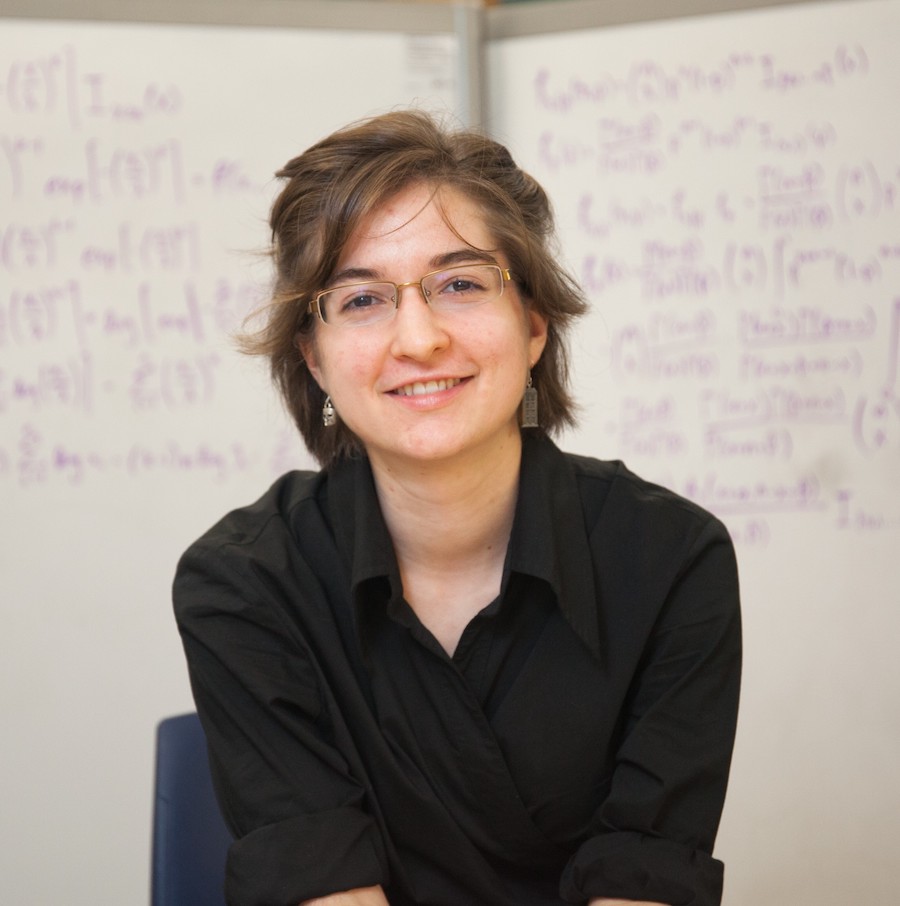Profile: Ph.D. student Corrine F. Elliott
When she arrived at Berkeley in 2019, current Statistics Ph.D. student Corrine F. Elliott had already spent nearly a decade in academia asking, “What can we learn about the world from data?”
 Elliott’s career as a statistician has not followed a purely linear path, and she acknowledges the significant role that serendipity and opportunity played in leading her to Berkeley’s Statistics department. Elliott recalls an early passion for mathematics, arising from what she calls its “inherent logic and beauty.” This inclination led her to enroll in a STEM program – the Math, Science, and Technology Center at Paul Laurence Dunbar High School in Lexington, KY – even as she doubted her chosen specialization’s ability to make an immediate, real-world impact.
Elliott’s career as a statistician has not followed a purely linear path, and she acknowledges the significant role that serendipity and opportunity played in leading her to Berkeley’s Statistics department. Elliott recalls an early passion for mathematics, arising from what she calls its “inherent logic and beauty.” This inclination led her to enroll in a STEM program – the Math, Science, and Technology Center at Paul Laurence Dunbar High School in Lexington, KY – even as she doubted her chosen specialization’s ability to make an immediate, real-world impact.
Fortuitously for Elliott, her magnet program’s curriculum culminated in a capstone research project overseen by faculty at the nearby University of Kentucky, and it was there that Elliott first found her vocational footing. For her senior thesis, Elliott joined a fledgling Organic Chemistry lab spearheaded by the late Dr. Susan Odom, an energy researcher whose guidance proved pivotal in Elliott’s development as a scholar. Although Elliott worked initially in organic synthesis, Dr. Odom helped her find a niche better suited to her mathematical and computational proclivities: modelling the molecules she once built, directing lab resources towards those compounds that seemed most promising for their intended energy-storage applications. “Working with the Odom Group was a formative experience for me,” affirms Elliott, “as I learned to use math and statistics to understand – and, in turn, to shape – the natural world.”
Elliott went on to study Mathematics, Chemistry, and Computer Science during her undergraduate years, and to focus on Statistics while pursuing a Master’s degree at the University of Kentucky. In 2016, on the strength of her continuing research with the Odom Lab, she was awarded the Goldwater and Astronaut Scholarships – two prestigious and nationally competitive awards, respectively bestowed on undergraduate STEM researchers for “initiative, creativity, and excellence” and for “commitment and potential to make a significant contribution” in their chosen field. Beyond her work in computational chemistry, Elliott put her burgeoning skills in computational data analysis to use on problems in Bioinformatics (analyzing protein sequences with a view towards precision medicine) as well as model selection and validation.
Elliott’s research continues to reside at the intersection of mathematics, computation, and the natural & social sciences. Her doctoral work entails developing practitioner guidance and tools to improve the quality of simulations in Data Science – improving the communal understanding of data-analysis techniques, and thence the data on which they act. She also analyzes data from the chemical analysis technique known as liquid chromatography-mass spectrometry (LC-MS), seeking to understand how plants interact with their environments to make up for resources they might lack, such as sunlight or nitrogen. During the “off-season,” she works for Berry Consultants, designing and executing adaptive clinical trials. These research initiatives are united by her desire to learn about the world through data, and to use this knowledge to direct resources towards the greatest potential for societal benefit.
In choosing a Ph.D. program, Elliott sought a school that would impart a firm foundation in Statistical theory, while also respecting the contributions and potentialities of the field’s applied and computational subsidiaries. Admitted into more than half a dozen schools with admirable scholarly reputations and attractive research agendas, Elliott chose Berkeley Statistics due to its warm, collaborative atmosphere and engaging population.
“Five years’ time is a sizeable commitment, and I looked for somewhere I could be happy enough to be successful for more than a short stint. One’s colleagues are a huge part of that,” says Elliott. She praises the collegial atmosphere she encountered at Berkeley, particularly under the guidance of her thesis advisor, Distinguished Professor Bin Yu. “Bin is very invested in the welfare of her students and community; in her research group, I see a lot of collaboration and care for one another.”
Elliott expects to graduate in May of 2024. Although she has not ruled out an academic career, she anticipates a future in consulting, whether catering to academic researchers or to clients in the private sector – either of which would allow her to work on varied data “to gain a deeper understanding of the mechanisms that regulate the natural world,” and thence, to improve it. In her own words, “It’s about making a clear, immediate and lasting impact.”